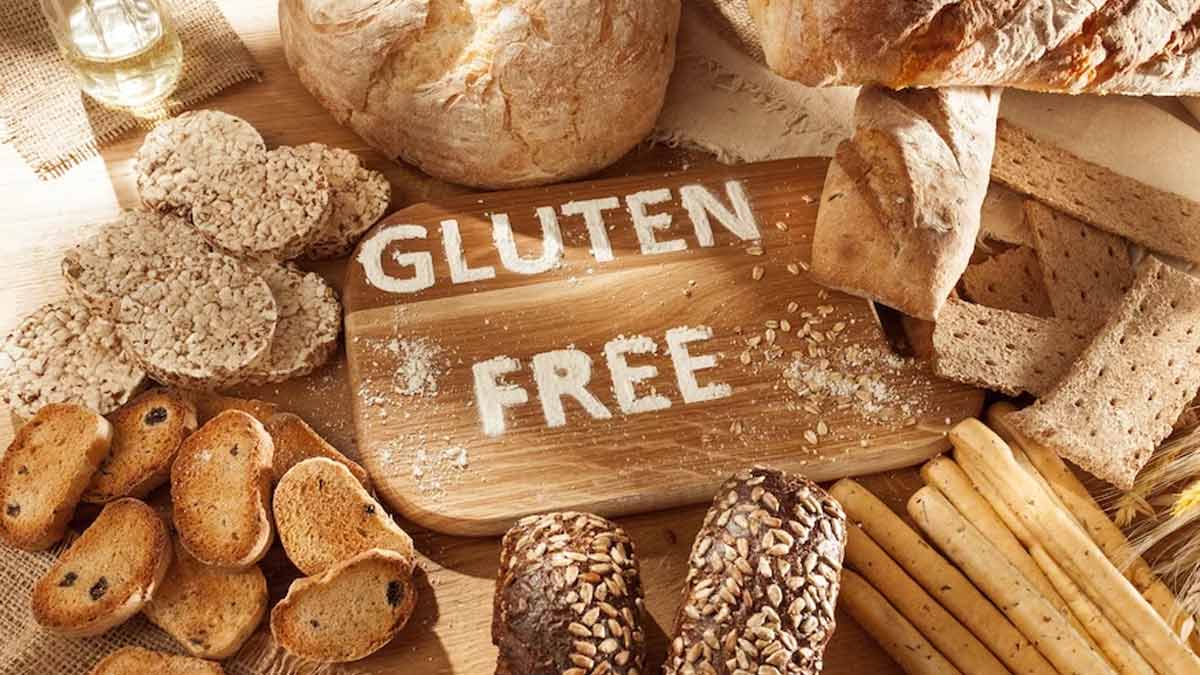
Bread, pasta, cereals, and baked goods like cakes and cookies are some of the most common foods we consume on a daily basis. Besides several other ingredients, these are also rich in gluten, a protein found in wheat, barley, and rye, which according to Sweedal Trinidade, Chief Dietary Services, PD Hinduja Hospital and Medical Research Centre, Mahim, has prebiotic effect that feeds the good bacteria in our body.
Table of Content:-
However, gluten-rich foods are not for everybody, nor should someone cut it out completely from their diet if they don’t really have to. In an interaction with the OnlyMyHealth team, Trinidade explains why.
What Is Gluten?

Gluten is a protein that naturally occurs in grains like wheat, barley, and rye. A study published in the StarPearls Publishing suggests about 80% of the protein in bread wheat is gluten, whereas pasta has a lesser degree of gluten.
Gluten consists of two main protein groups namely gliadin and glutenin. Glutenin is what gives elasticity and structure to the dough, whereas gliadin is responsible for many of the negative health effects associated with gluten, especially in individuals with celiac disease or gluten sensitivity, as it can lead to health complications ranging from digestive issues to autoimmune problems.
It is one of the reasons why many people choose to go gluten free, switching to alternative flours like rice, corn, or almond flour.
Also Read: Gluten Intolerance: Foods to Eat and Foods to Avoid
Understanding Gluten-Related Conditions

Gluten-related conditions occur when some people have adverse reactions to gluten due to their genetic makeup and immune responses. These can be divided into three main groups, which include:
Celiac Disease: This is an autoimmune disorder wherein the immune system mistakenly attacks the lining of the small intestine when gluten is consumed, leading to malabsorption of nutrients and digestive issues thereafter.
Wheat Allergy: Some people experience allergic reactions to proteins found in wheat. This includes gluten. The condition is sometimes associated with severe symptoms, such as hives, difficulty breathing, or anaphylaxis.
Non-Celiac Gluten Sensitivity (NCGS): NCGS is a condition in which people experience symptoms similar to those of celiac disease when they consume gluten, but without the autoimmune response and intestinal damage seen in celiac disease.
Gluten-Free Diet Shouldn’t Be Followed As A Trend

Many, who have no gluten-related conditions, are also switching to a gluten-free diet assuming it holds health and weight loss benefits. However, nutritionist Trinidade warns against following the diet as a trend.
She says, “As such, a gluten-free diet has no health benefits and does not aid weight loss. On the contrary, a major chunk of staple foods are wheat-based constituting carbohydrates. Therefore, reducing carbohydrates may temporarily promote weight loss, but in the long run it is not helpful.”
Also Read: Gluten-Free Flour: Alternatives For People With Celiac Disease
“Anyone attempting weight loss or just trying a fad diet shouldn’t quit gluten; this will only minimise the diet options and also prevent one from relishing some of the delicious foods,” she concludes.
In fact, a 2013 nutrition survey involved 53 healthy adults and found that those who followed a gluten-free diet consumed "significantly" lower amounts of carbohydrates, fibr, niacin, folate, and calcium, but significantly higher amounts of fat and sodium, that men who were on a gluten-containing diet, says a study published in the Independent Peer-Reviewed Journal Gastroenterology and Hepatology, adding, "Overall, adults adhering to a GFD did not consume enough nutrient-dense foods to meet all nutritional recommendations."
Conclusion
While a gluten-free diet is a suitable diet routine for people with gluten sensitivity and celiac disease, our expert recommends healthy individuals should not resort to it for no reason. In general, gluten is a source of essential nutrients found in wheat, such as fibre, vitamins, and minerals. Whole grains containing gluten can contribute to a balanced diet, supporting digestive health and providing energy.
Also watch this video
How we keep this article up to date:
We work with experts and keep a close eye on the latest in health and wellness. Whenever there is a new research or helpful information, we update our articles with accurate and useful advice.
Current Version